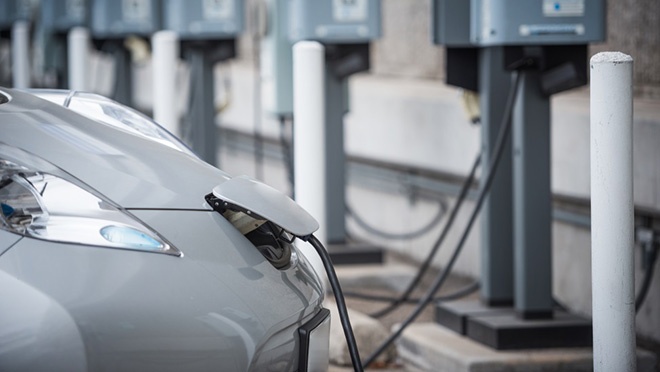Alliance key in helping customers make switch to plug-in electric vehicles

Many British Columbians confused about costs, practicality of EVs
In April, BC Hydro published a report on electric vehicles [PDF, 212 KB] that details common barriers and myths held by our customers about electric vehicles. Sticker shock is the most common perceived barrier for British Columbians, and the survey shows that owning an electric vehicle is considered by many to be a fantasy: More than half believe electric vehicles are still too expensive.
Alliance members can play a pivotal role in the adoption of electric vehicles, so we're encouraging members to get certification through the Electric Vehicle Infrastructure Training Program (EVITP). We provide details below on how to sign up for the program, but first here's a look at the EV report and at new incentives for the installation of charging stations.
Fourteen plug-ins available in B.C. can be purchased for less than $40,000 once B.C.'s battery electric or plug-in hybrid electric rebates are factored in.
Aside from worries about the purchase cost of plug-in vehicles, the report also found other misconceptions, including charging station availability. Almost 90% of respondents said there was not an electrical vehicle charging station available at their home or residential complex.
Province develops program aimed at improving affordability
The Alliance has always played a role in helping customers understand the value of energy efficient technology. Cost of adding an electric vehicle charging station can be a major issue for customers, and the Clean Energy Vehicle Program, funded provincially and administered by Plugin BC, addresses this with three new rebates for the purchase and installation of charging stations:
- Single-family homes and duplexes: Incentive covers 75% of costs, up to $750, for the purchase and installation of a Level 2 (208v/240v) charging station for residential use installed February 1, 2018 or later.
- Multi-unit residential buildings: Incentive covers 75% of costs, up to $4,000, for the purchase and installation of a Level 2 station (208v/240v).
- Workplaces: Incentive covers 50% of costs, up to $4,000, per Level 2 station (or $2,000 per Level 1 (120v) station).
Funding of $1.85 million is available now through March 31, 2020 (or while program funding lasts).
Inquiries for EV charging stations are on the rise
The report also found that a third of respondents expect their next vehicle purchase to be electric. In addition to this forecasted demand, the Alliance team has already seen nearly a 50% increase in customer inquiries so far in 2018 over 2017. Most queries have been from residential customers inquiring about level 2 charging station installation.
Alliance members who want to take advantage of the growing market and be placed on the referral list need to complete the Electric Vehicle Infrastructure Training Program (EVITP) certification.
How to get EVITP certified
The four-day training program provides participants with an understanding of best practices in code and safety for electric vehicle charging station installers, as well as hands-on practice.
EJTC, part of the Electrical Joint Training Committee in Canada, has two upcoming sessions:
- June 18 – 21, 2018
- July 7, 8, 21 and 22, 2018
If you're a licensed electrician in compliance with B.C. requirements, you can register for the EVITP course.